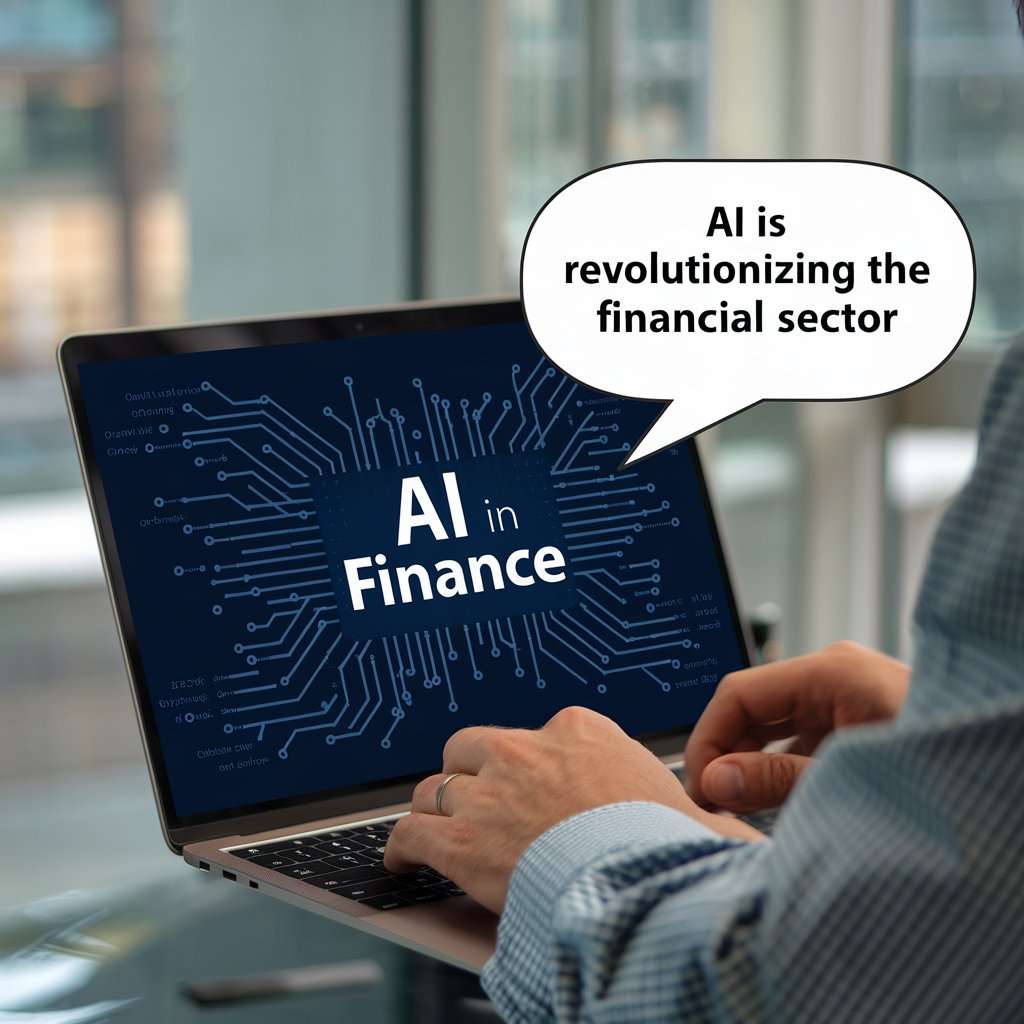Explore Our Guide: Fintech Startups and AI: How to Stay Ahead of the Curve
Artificial Intelligence (AI) is transforming industries across the board, but its impact on finance has been especially profound. From algorithmic trading and fraud detection to customer service and risk management, AI is reshaping how financial institutions operate. In this blog, we’ll delve into the latest AI-driven trends in the finance sector, the benefits and challenges of AI adoption, and what the future holds for AI-powered finance. Read More: How AI is Revolutionizing Customer Service in Banking
AI in Banking: A Customer Service Revolution
AI has rapidly integrated into various areas of financial services, bringing automation, speed, and accuracy to processes that were once manual and time-consuming. The use of AI technologies is not just limited to large banks and hedge funds; it is also empowering fintech startups and small businesses to leverage data-driven insights and automation to scale their operations.
Key AI Applications in Finance
Algorithmic Trading
AI algorithms are used to automatically execute trades based on real-time data and predefined strategies. These AI systems can analyze vast amounts of financial data faster than any human, enabling traders to make quicker, more informed decisions. Algorithmic trading now accounts for a significant portion of all trades in global financial markets.Fraud Detection & Prevention
AI systems are helping banks and financial institutions detect fraudulent activities in real time. By analyzing patterns in transactions, AI can flag suspicious activities and prevent fraud before it occurs. Machine learning models are continuously improving their accuracy, helping institutions save billions of dollars annually.Customer Service & Chatbots
AI-powered chatbots are transforming customer service in the financial industry. They can handle routine inquiries, such as account balances, transaction history, and even financial advice, allowing banks to improve customer experience while reducing operational costs.Credit Scoring & Risk Assessment
Traditional credit scoring systems rely on limited data, often excluding large portions of the population. AI-based credit scoring uses alternative data sources, such as social media activity and online behavior, to assess creditworthiness more accurately, especially for individuals with limited credit history.Risk Management
AI is playing a critical role in risk management by analyzing complex datasets to predict market movements, assess portfolio risks, and identify emerging risks. AI’s predictive capabilities enable institutions to minimize potential losses and take advantage of market opportunities.
How AI is Driving Efficiency in Finance
Cost Reduction: AI-driven automation is reducing the need for manual labor in several key areas such as data entry, customer service, and compliance monitoring. This not only cuts costs but also boosts overall operational efficiency.
Data-Driven Insights: Financial institutions generate massive amounts of data every day. AI tools, especially machine learning and deep learning algorithms, allow companies to derive actionable insights from this data, helping them make better financial decisions.
Speed and Accuracy: AI systems process data in real-time, enabling faster decision-making. Whether it’s executing a trade or detecting fraud, AI enhances both speed and accuracy in ways that human analysts simply cannot match.
Challenges and Risks of AI in Finance
While AI offers enormous potential, it also presents challenges: Learn More About AI Ethics in Finance:
Addressing Bias in AI Models: Why It Matters in Finance
Data Privacy Concerns: Financial institutions handle sensitive personal data, and the use of AI raises concerns over how this data is stored, accessed, and used. Cybersecurity threats are also a growing issue, as AI systems are potential targets for hackers.
Bias in AI Models: AI systems are only as good as the data they are trained on. If the training data contains biases, the AI model may reinforce these biases, leading to unfair lending practices or inaccurate credit scores.
Regulatory Compliance: As AI becomes more embedded in financial systems, ensuring compliance with local and international regulations becomes increasingly complex. Regulatory bodies are still catching up with the rapid evolution of AI, and financial institutions need to remain vigilant in managing compliance.
Job Displacement: Automation driven by AI threatens to displace many jobs in the financial sector. Routine tasks like data entry, reporting, and customer inquiries can now be performed by AI, which may lead to layoffs if companies do not adapt by reskilling their workforce.
The Future of AI in Finance
The future of AI in finance looks promising as the technology continues to evolve. We expect to see the rise of AI-driven robo-advisors, which can offer personalized financial advice at scale, and more sophisticated predictive analytics tools that enable investors to anticipate market trends with greater accuracy.
Moreover, the convergence of AI with blockchain technology and quantum computing could unlock new possibilities in areas like secure transactions and cryptocurrency trading. Explore Our Guide: Fintech Startups and AI: How to Stay Ahead of the Curve
Fintech and AI: A Match Made in Tech Heaven
Conclusion: AI – A Double-Edged Sword for Finance?
AI is undoubtedly driving innovation and efficiency in the finance industry, but it also brings with it significant challenges that need to be addressed. As AI continues to transform how financial institutions operate, those that can navigate its risks while leveraging its benefits will emerge as leaders in the industry.




